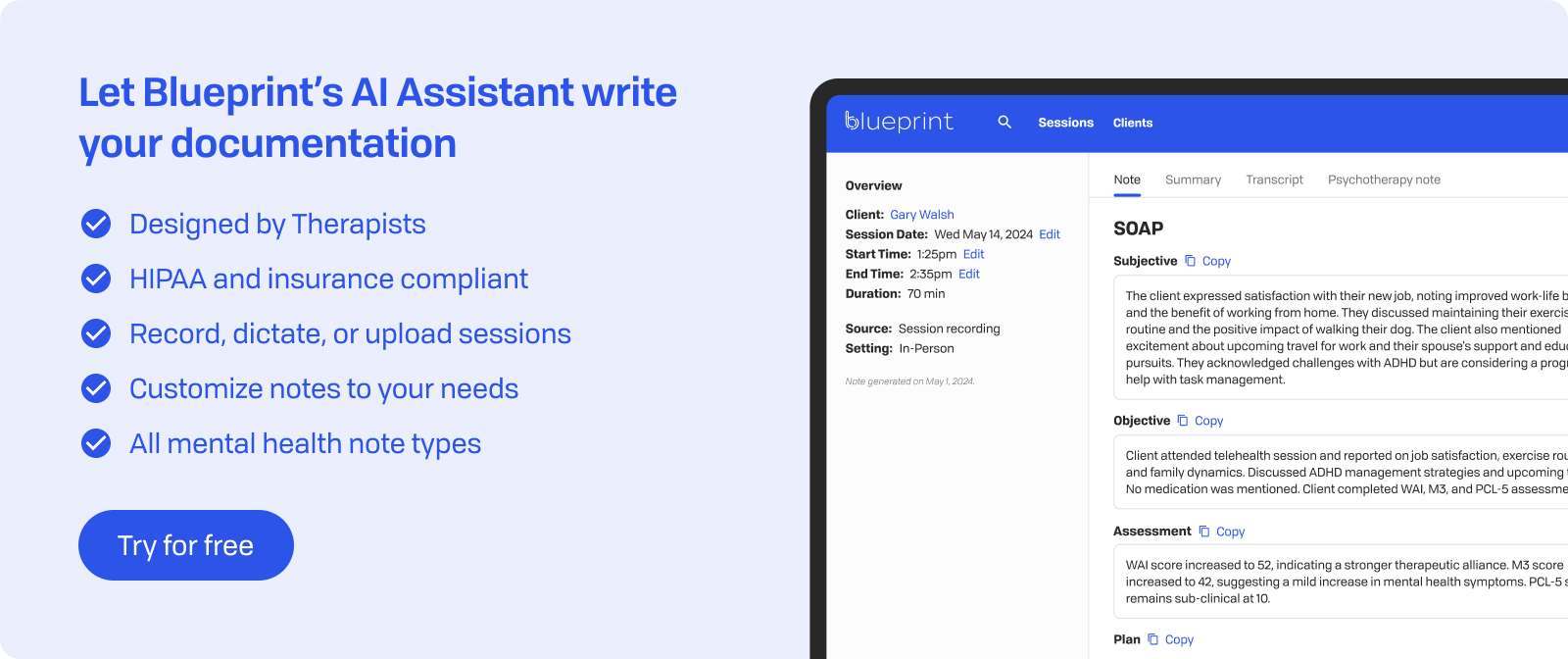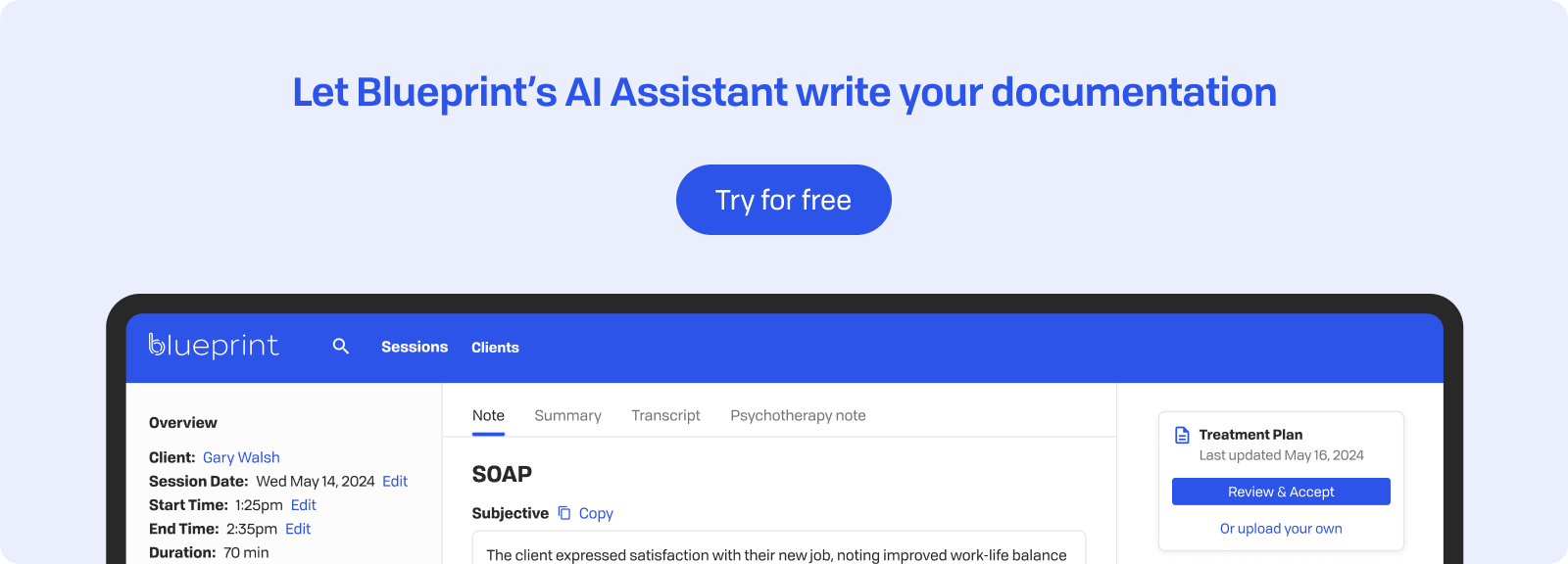In Brief
Have you noticed how some therapists attract their ideal clients effortlessly while others struggle to fill their caseloads? The difference often lies in one strategic decision many practitioners are hesitant to make. This choice can transform your practice from just another name in the directory to the go-to expert clients actively seek out.
With shifts in the mental health field since the pandemic, including increased use of telehealth, more clinicians possessing multistate licensure, and the rise of large mental health tech companies offering care, the mental health field has become crowded. Standing out requires more than just being a skilled clinician—it demands communicating a clear focus that resonates with specific clients. This approach might feel counterintuitive, especially when conventional wisdom suggests casting a wide net.
Yet, the most successful practices often share a common thread: they focus on a niche. Specializing involves concentrating on a specific population, issue, or intervention method rather than trying to be everything to everyone. Let's look at why this focused approach has become crucial for building a thriving practice in today's competitive landscape.
Benefits of Specializing in Clinical Practice
When you specialize in a particular area, you naturally develop deeper expertise, which leads to more effective clinical work. Instead of covering surface-level knowledge across dozens of presenting issues, you can explore the nuances of specific conditions. This depth allows you to recognize subtle patterns, anticipate common challenges, and develop refined intervention strategies that generalist practitioners might miss.
Specialization simplifies your marketing and messaging efforts. Rather than crafting vague content that attempts to appeal to everyone, you can create targeted materials that address your ideal clients' specific struggles. Your website copy, blog posts, and social media content can focus on the exact pain points, fears, and hopes of your chosen population. This approach makes potential clients feel understood and confident that you're the right therapist for their needs.
Your referral network strengthens when you establish yourself as a specialist. Other healthcare providers, therapists, and community professionals are more likely to send clients your way when they know exactly what you excel at. Word-of-mouth referrals also increase because satisfied clients can easily explain your specialty to others facing similar challenges. Over time, you become known as the go-to expert in your area, creating a cycle of visibility and credibility.
The financial benefits of specialization often surprise therapists who worry about limiting their client base. Specialists can often command higher cash pay fees because clients perceive greater value in working with an expert. You can also develop specialized assessment tools, treatment protocols, and group programs that enhance your impact and income. Additionally, your expertise opens doors for speaking engagements, consultations, and other professional opportunities beyond direct client work.

Choosing the Right Niche for You
Finding your niche begins with reflecting honestly on what truly energizes you in clinical work. Think about the clients who have fulfilled you the most, the issues that spark your curiosity, and the times when you've felt most competent and confident. Your existing training, certifications, and life experiences also offer natural starting points for specialization.
Market research can help you confirm the market exists for potential areas of specialization that interest you. Various methods can reveal demand in your area:
- Analyze search trends: Use tools like Google Trends to see what therapy-related terms people search for locally.
- Connect with referral sources: Talk to physicians, school counselors, and other therapists about gaps they notice.
- Explore online communities: Reddit threads, Facebook groups, and forums show what support people desperately seek.
- Study local demographics: Census data and community health assessments highlight underserved populations.
The ideal niche lies where your interests intersect with market demand. A niche that captivates you but has minimal client need won't sustain your practice. Conversely, choosing a high-demand area you find draining will lead to burnout.
Testing your niche through workshops, speaking engagements, or limited offerings allows you to gauge both client interest and your own enthusiasm before fully committing. This exploratory approach helps you find the specialization that feels both personally meaningful and professionally viable.
Common Pitfalls and How to Avoid Them
Focusing too narrowly in your practice can limit your range of clients and stifle creativity. While working with "left-handed adults who experienced childhood trauma between ages 5-7" might seem like a focused niche, such extreme specificity can hinder client flow and reduce flexibility. Aim for a niche that sets you apart but is still broad enough to keep your practice thriving.
Avoid these common mistakes:
- Confusing modality with niche: Saying you specialize in "CBT" or "EMDR" refers to a method rather than a niche. Clients look for help with specific problems, not techniques. Define your niche by the people you serve and the issues you address.
- Choosing emotionally intense specializations without support: Working with severe trauma, grief, or crisis demands strong self-care practices and significant training. Without proper supervision, peer consultation, and personal therapy, burnout or unintentionally causing harm to clients is a real risk.
- Using too much jargon: Marketing yourself with terms like "attachment dysregulation" or "interpersonal neurobiology deficits" can alienate potential clients. Use language that resonates with how your ideal clients describe their struggles.
- Ignoring scope limitations: Specializing doesn't mean you treat every issue within your niche. Ethical practice requires knowing when clients need different expertise, such as medical intervention or a different therapeutic approach.
The best niches balance personal passion with realistic boundaries. Regular consultation can help you know when it's time to refer clients elsewhere. Referring clients appropriately not only enhances your reputation as an ethical provider but also shows you prioritize client welfare over keeping every case.

Strategies for Implementing Your Niche
Your website and online presence should immediately convey who you serve and how you help them. Replace vague language like "I help people with various issues" with specific messaging such as "I help new mothers navigate postpartum anxiety and the identity issues that often come with this phase of life" Every page, from your homepage to your about section, should reinforce your specialization through targeted language and relevant imagerythat reflect your niche.
Think about developing specialized offerings that show your expertise:
- Assessment packages: Create comprehensive evaluations tailored to your population when applicable. For example, providing psychological testing for ADHD to women.
- Group programs: Design workshops or support groups addressing common challenges such as getting through a breakup or divorce or people living with chronic pain.
- Resource libraries: Compile handouts, worksheets, and guides tailored to your clients
- Intensive formats: Offer weekend retreats or half-day sessions for more focused work, this may work especially well with couples who have experienced infidelity or for EMDR half-day intensives to treat complex trauma.
Building strategic referral partnerships can accelerate your practice growth. Identify professionals who regularly encounter your ideal clients but don't provide therapy services. For a teen anxiety specialist, this might include school counselors, pediatricians, and tutoring centers. For someone specializing in infertility support, connections with reproductive endocrinologists and acupuncturists can be invaluable.
Make connecting with referral sources a systematic effort. Schedule coffee meetings, offer to speak at their staff meetings, or provide educational materials they can share with clients. Focus on how your specialization complements their services and makes their jobs easier. When these professionals understand exactly what you offer, they become enthusiastic advocates who confidently refer clients knowing they'll receive specialized care.

Deepening Your Niche Expertise
Once you've established your niche, continuing professional development becomes more focused and impactful. Instead of attending general therapy conferences, you can seek out targeted training that directly enhances your specialized practice. This purposeful approach to learning accelerates your expertise and sets you apart from generalists.
Consider these pathways for expanding your specialization:
- Advanced certifications: Obtain credentials specific to your population or presenting issues, such as perinatal mental health certification (PMHC) for those working with new parents, or specialized trauma certifications, like attachment-focused EMDR, for complex PTSD work.
- Intensive training programs: Participate in immersions or multi-phase training that provide depth in your chosen area.
- Specialized supervision: Collaborate with supervisors who share your niche focus and can offer detailed guidance on complex cases.
- Research participation: Work with academic institutions studying your population or treatment approaches.
Leadership opportunities naturally arise as your expertise grows. Engaging in activities like speaking at conferences, writing for professional publications, and teaching workshops positions you as an authority while contributing to the field. These activities create a positive feedback loop—teaching others enhances your own understanding while expanding your professional network.
Tracking outcomes specific to your niche validates your approach and refines your methods. Develop standardized assessments relevant to your population and regularly collect client feedback about what works. This data not only improves your practice but also provides compelling evidence of your effectiveness when marketing your services or seeking speaking opportunities.
Case Illustration: From Generalist to Niche Expert
Meet Sarah, a fictional therapist who spent five years as a generalist seeing anyone who called. Her caseload included couples, anxious teens, grieving adults, and everything in between. While she was competent across these areas, she felt scattered and struggled with maintaining a full case load. She was unsure how to market herself effectively because she didn’t want to leave anyone out when describing who she could help. Her website simply stated she helped "individuals and couples with life challenges."
After attending a workshop on practice development, Sarah thought about her most rewarding cases. She noticed a pattern: adult children struggling with emotionally unavailable parents. These clients energized her, and she realized her own family history gave her unique insight into their struggles.
Sarah didn't switch focus immediately. Her initial concerns included:
- Fear of turning away clients: Would specializing lead to an empty schedule? Would other people she also wanted to work with, like couples, not reach out to her anymore?
- Imposter syndrome: Was she knowledgeable enough to claim this niche?
- Marketing confusion: How could she rebrand without losing existing clients?
She started small, writing blog posts about the impact of emotional unavailability on adult relationships. Within three months, inquiries from her ideal clients increased. Sarah refined her website messaging, joined online communities for adult children of emotionally distant parents, and connected with therapists who didn't specialize in this area.
The results after one year:
- Client fit improved: Sessions felt more impactful with clients who shared similar struggles. She was still receiving inquiries from couples and other people who she previously enjoyed working with even though her marketing materials were focused on her niche.
- Referrals increased: Other therapists regularly sent her appropriate cases
- Fee increases: Clients willingly paid higher rates for her specialized expertise
- Professional satisfaction soared: Sarah felt energized rather than depleted after sessions
Her practice transformed from surviving to thriving through the focus on specialization.

Key Takeaways
Focusing on a niche can transform your practice from overlooked to essential. The benefits go beyond just having a full schedule—you'll gain more visibility in a crowded market, build a reputation as a knowledgeable expert, form stronger connections with clients who feel genuinely understood, and find greater satisfaction in your clinical work.
Here's how to successfully specialize:
- Identify your passion: Consider which cases excite you, think about personal experiences, and reflect on your existing training.
- Assess market need: Look into local demographics, analyze search trends, and find gaps in services.
- Define your niche: Strike a balance between being specific enough to stand out and broad enough to sustain your practice.
- Tailor your marketing: Update your website, create targeted content, and offer specialized services.
- Deepen your competence: Seek relevant certifications, get specialized supervision, and keep track of outcomes.
- Monitor and adjust: Gather client feedback, refine your approach, and expand thoughtfully.
Focusing on a niche isn't about narrowing your options—it’s about making a bigger impact. When you concentrate on serving specific clients exceptionally well, everyone benefits. Your clients receive care from someone who truly understands their issues, and you enjoy the fulfillment that comes from mastering your craft and doing meaningful work. The mental health community also gains a trusted expert for referrals.
The therapists who succeed in today’s competitive environment aren’t trying to do it all. They’ve found that smart specialization improves both the quality of care they deliver and their own professional contentment.











